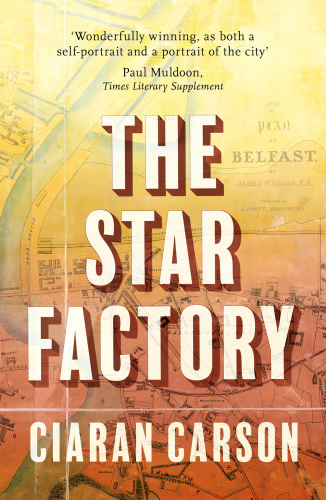
The Star Factory
کتاب های مرتبط
- اطلاعات
- نقد و بررسی
- دیدگاه کاربران
نقد و بررسی

August 31, 1998
The playful, enchanting contiguities of Irish poet Carson's memoir (which is as much a portrait of the city of Belfast as it is of one of its denizens) are just as skilled as those in Nabokov's standard, Speak, Memory, and are even somewhat bolder. One chapter is linked to another by the resonance of a simple word, as if Carson is doing a kind of poet's math (e.g., the study of small photographs leads to a chapter on childhood stamp collecting, which leads to a discussion of the General Post Office rebellion that led to a divided Ireland, a divided Belfast and, ultimately, to Carson's fractured and carefully reconstituted experience). Therein, however, lies the problem: the memoirist is forced to rely on tricks to give shape and life to a story that resists both. It's not Carson who's to be blamed for this, however, but his subject, the city of Belfast (where Carson grew up a Catholic) and the troubles, economic and political, that have bedeviled it for decades. However lovingly recalled--Radio Ulster, the building of the Titanic--and no matter how imaginatively re-created, as with the Star Factory of the title (a Belfast industrial structure "long since demolished" but leaving "an interactive blueprint; not virtual, but narrative reality"), Belfast itself cannot be stirred. It seems dead. Unlike Nabokov, who had a revolution and exile to write about, Carson is trapped in a city he's unable to turn away from, its dark, smoking decline reflected in his eyes and extraordinary prose. Among the flood of Irish memoirs these days, none are as dazzlingly written as this, and none remain so solidly entrenched in the sovereign space of the imagination.

























دیدگاه کاربران